Yep, mathing is an official verb in the urban dictionary. Here are some of the ways we’ve been mathing this year (2nd grade/2e année)…
Number Sense: Estimating & Counting
Visit this post to read more about our pumpkin seed test (…coming soon).
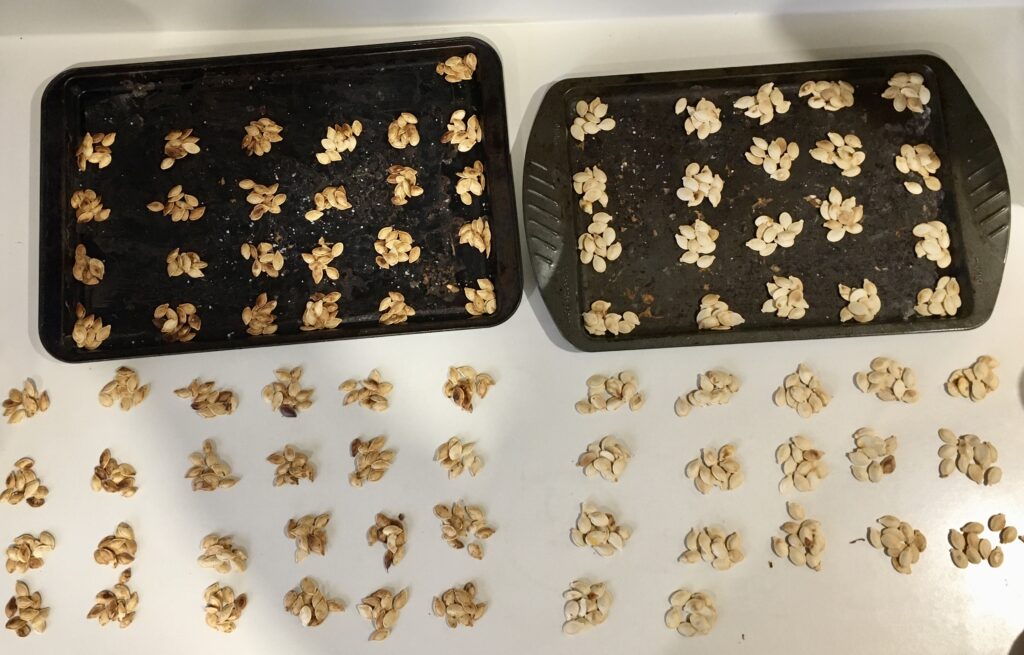
Number Sense: Addition & Subtraction
We use worksheets for sure (see below), but we also use hands-on manipulatives like bean bags, dominoes, dice, cards etc. With bean bags we might aim for a basket and sum up all the numbers that got in and all the numbers that didn’t and see which wins, or just put them in groups.
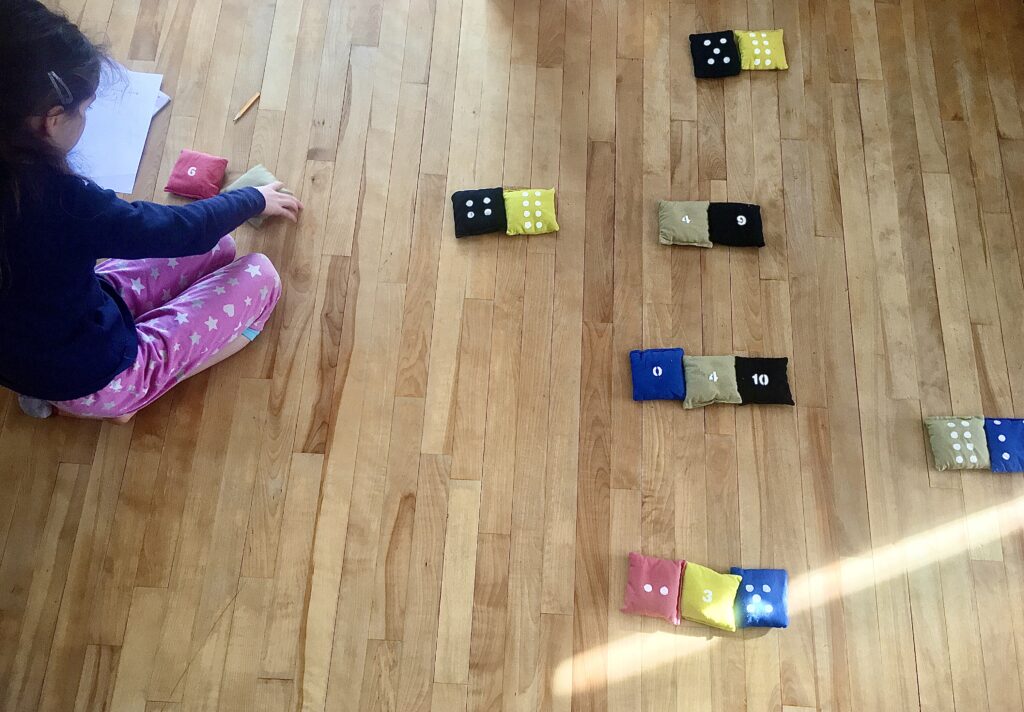
Running math game: The clothes pegs have numbers on them. The girls run to the bowl, pick a peg, run back and put it on the clothesline, and repeat until there are no more pegs. Then they add up their sums. It is fun played kids versus adults;)
Number Sense: Fractions
Piano (so much math!). We follow Hoffman Academy for free (thank-you Mr. Hoffman!!)
And cooking (e.g. cutting a pizza into pieces and figuring out what fraction each person ate). Also in cooking measurements (e.g. two half cups equals one cup etc.)
Mathematical Language
Yes or no – guess the number game. Is it less than 10? Is it more than 30? Is it between 30 and 50? Is it an odd number? etc. (Plus petit que? Plus grands que? Entre 30-50? Impair? etc.)
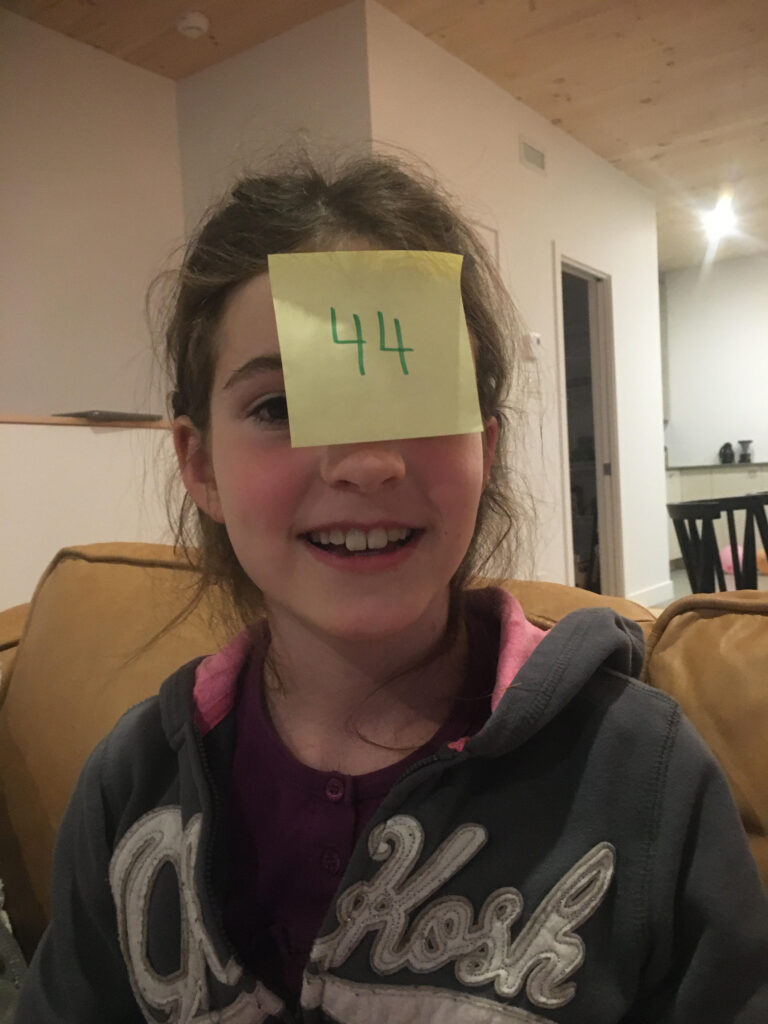
Money Sense/Financial Literacy
My friend Lisa gave me this tuck shop/candy store idea! This is a favourite math activity obviously;)
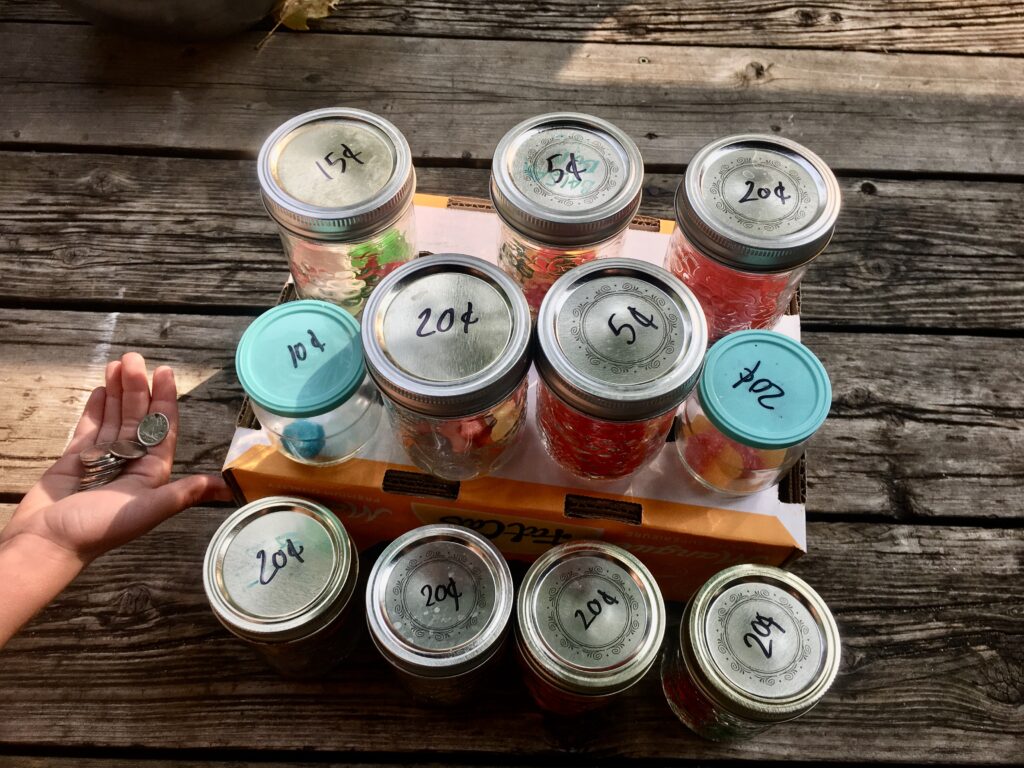
Receipt math:
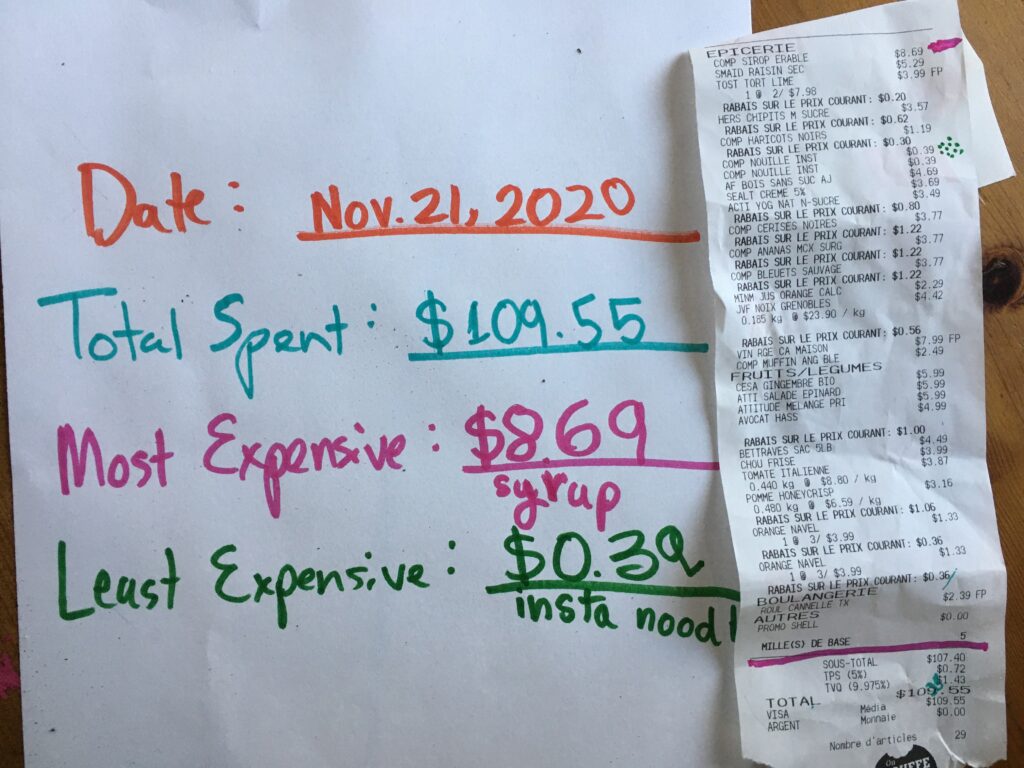
Also, we did some of these financial literacy worksheets.
Measurement
Building a bird house for a chickadee. We followed a Cornell Lab of Ornithology Nest Box plan.
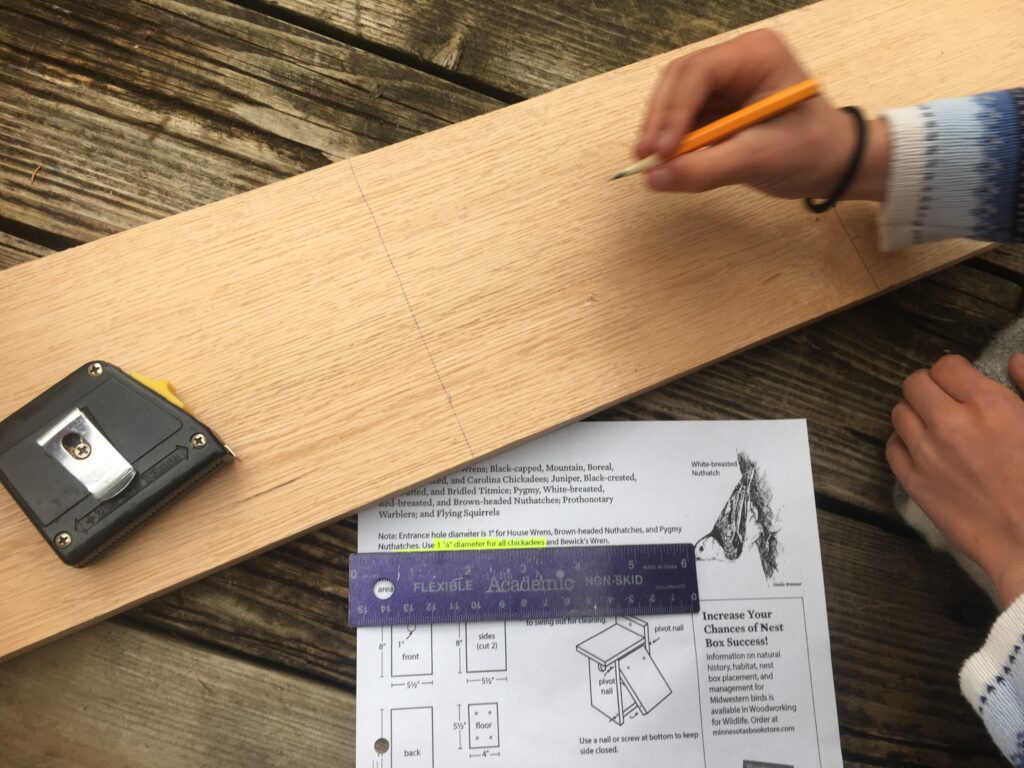
Also time measurement/telling time, temperature measurement etc.
Coding
Most provinces have made coding a mandatory part of the elementary curricula. Quebec is behind on this.
Here are the Ontario Gr. 2 coding expectations:
- C3.1: solve problems and create computational representations of mathematical situations by writing and executing code, including code that involves sequential and concurrent events.
- C3.2: read and alter existing code, including code that involves sequential and concurrent events, and describe how changes to the code affects the outcomes.
I made my own coding worksheets:
Logic
I made my own logic puzzle worksheets:
Spatial Sense
Games like Battleship. Using and making maps. Compass courses.
Data
See the blog post on Forget-Me-Not pollination data collection.
And see the blog post on weather data collection (coming soon).
Collecting data on who was visiting our sunflower seeds:
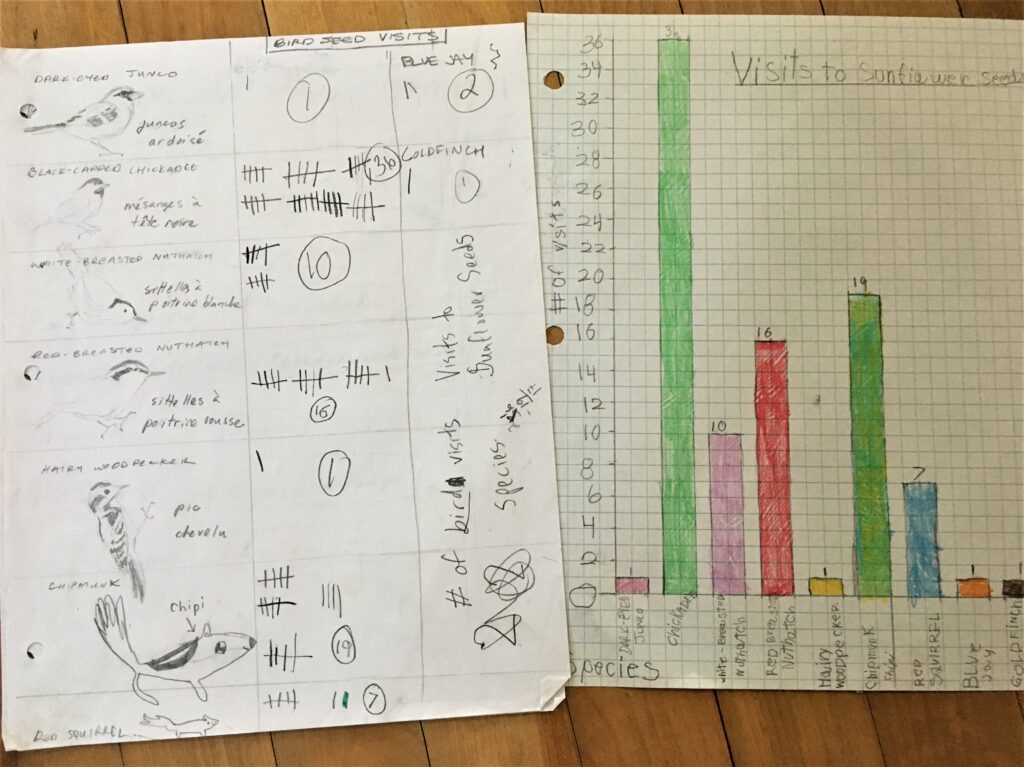
Situational Problems
I’m sending these to our DEM rep separately (they are multi step & page problems).
Dipping into 3rd Grade: Multiplication & Area
Array capture game:
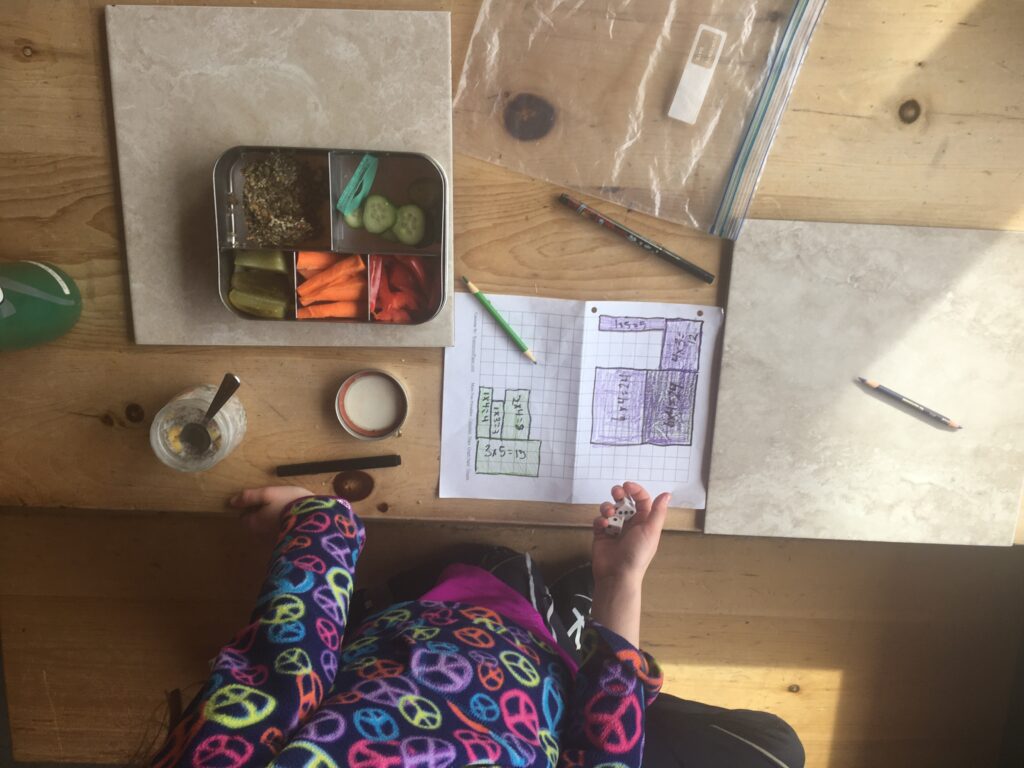
Multiplication flowers on our board (by the way, we use this board every day homeschooling). We also do questions in chalk on the trampoline and deck (anything to be outside!).
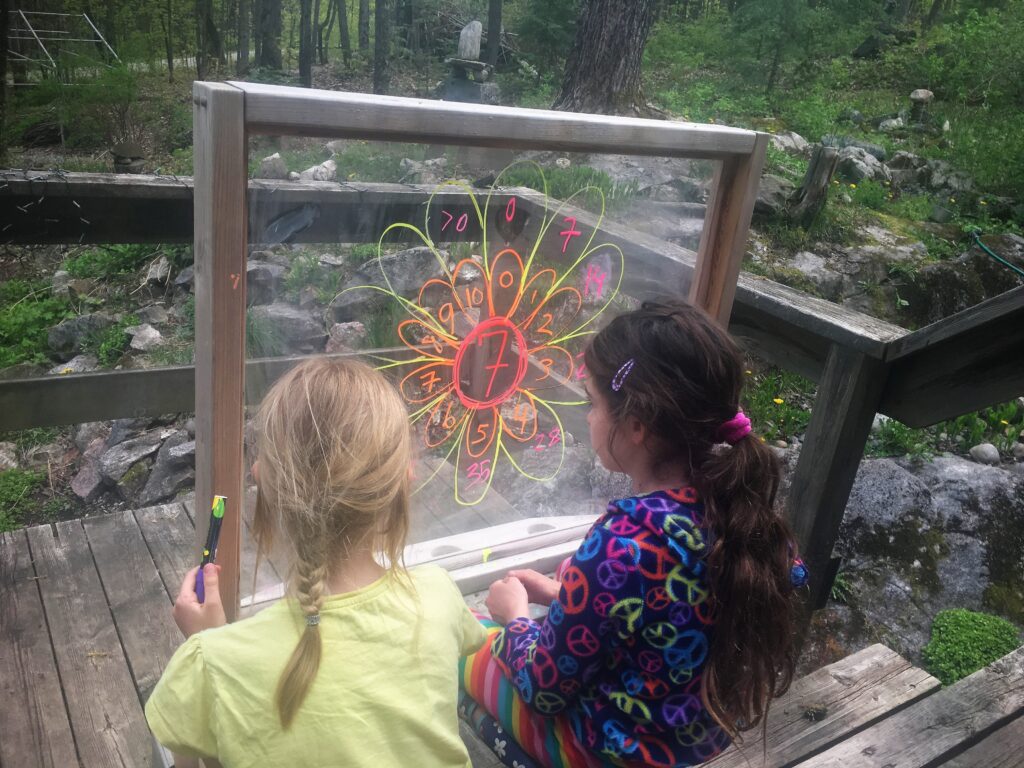
Resources
We do Khan Academy:
We also do the math worksheets in Les Futés:
Futés 2e année LesHappy mathing, Kate
